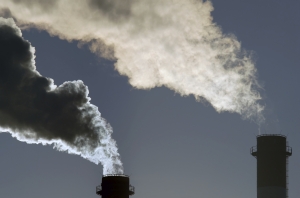MELBOURNE, November 14, 2017 – A new outlook from energy and carbon market analysts, RepuTex, indicates that the price of carbon offsets under the government’s National Energy Guarantee (NEG) may be as low as A$5-10, with high emitting companies potentially able to source over 1 billon carbon offsets to help reduce emissions at “least-cost”.
Ahead of the release modelling on the NEG by the Energy Security Board, RepuTex published its outlook for the supply of Australian carbon credit units (ACCUs) through to 2030, analysing the total volume of offsets available and estimated offset prices, based on demand to purchase credits from companies covered by the NEG and safeguard schemes.
Notably, analysis indicates that entities liable to the “emission guarantee” under the NEG may be able to draw on a large number of “low-cost” carbon credits, with up to 900 million offsets potentially available in Australia at under A$20 per tonne – with the majority between A$5-10/t.
This is well under prices in international markets, with carbon prices in Europe and California forecast to grow to A$40-120 by 2030, reflecting the higher ambition of these markets under the Paris Agreement.
“The high forecast price of international credits provides important context for Australian companies, with domestic offsets likely to be cheaper” said RepuTex Executive Director, Hugh Grossman.
“Should demand arise under the NEG, there is potential for a significant volume of domestic offsets to be available around $5-10, with our upper bound rising to around $35 as more demand potentially comes online under the safeguard scheme”
CHEAP AUSTRALIAN OFFSETS MAY BE “LOW QUALITY”
While Australia may have a large volume of low cost carbon offsets, according to RepuTex, many of these credits are derived from so-called “anyway projects” – such as energy efficiency programmes – that are likely to go ahead even without carbon policy.
Emissions savings from these projects can often be questionable, with the risk these low-quality credits may not be recognised by other markets.
“Many low cost projects are likely to occur anyway, so some methods may not reduce emissions against a genuine benchmark” said RepuTex Executive Director, Hugh Grossman.
“As markets such as Europe and California tighten their offset rules, these low quality offsets are unlikely to be eligible internationally” he said.
According to RepuTex, the risk of low quality carbon credit methodologies being cancelled may have a significant impact on any local carbon offset price.
“If carbon credit methodologies are tightened to improve the quality of some local offsets, the removal of low cost credits from the local supply pool would have a significant impact on carbon offset prices through to 2030”
“In such a scenario we would see domestic offset prices step up a lot faster, closer to international markets” he said.
LOW COST OFFSETS MAY PROVIDE GREATER FLEXIBILITY FOR “NON-NEG” SECTORS
Despite concerns over quality, RepuTex believes that low-cost credits could still play a role in Australia, providing policymakers and industry with flexibility in how they reduce emissions.
This is particularly important for the industrial sectors – covered by the safeguard mechanism – which are likely to carry the bulk of the load to meet Australia’s 2030 target if the NEG is implemented as planned.
According to RepuTex, should the 26 per cent target for the NEG be extended across all sectors of the economy, the Oil and Gas and Transport sectors – Australia’s emissions growth sectors – could be liable for up to 60 per cent of all abatement to meet Australia’s 2030 target, despite making up only 18 and 19 per cent of national emissions.
Comparably, the NEG would contribute only 20 per cent of all emissions reductions, despite electricity being Australia’s largest emitting sector (35 per cent of national emissions).
The NEG is therefore likely to shift the burden to cut emissions onto sectors that face higher internal abatement costs, making carbon offsets more important.
“The availability of large volumes of domestic offsets, at low prices, allows policymakers to keep compliance costs low for sectors like Steel, Aluminium, Cement and Oil & Gas, which have much higher abatement costs than the electricity sector”
“Cheap domestic offsets gives policymakers flexibility – for example, we could see low-cost credits being used just by trade exposed industries”
“This can help policy get off the ground with less impact on industry” said Mr Grossman.
MEDIA CONTACTS
RepuTex spokespeople are available for comment. Please contact RepuTex Melbourne on +61 3 9600 0990.













